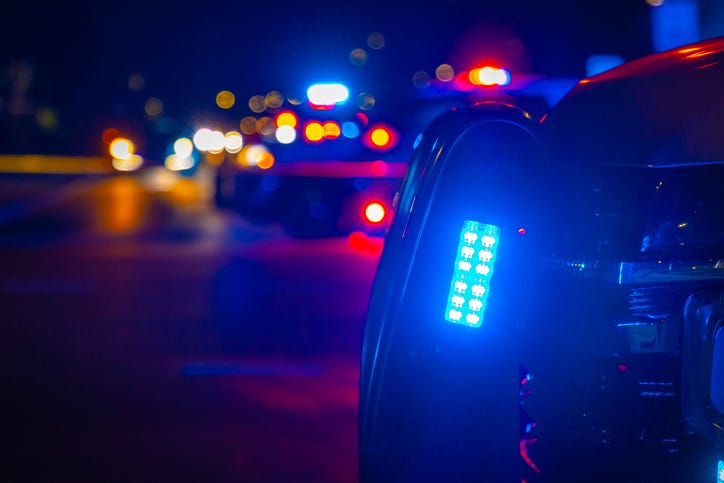
Quiet, rural Oxford, Mich., is a place where people don't often lock their doors. Where they know their neighbors, wave to them from pick-up trucks on the way to grab an ice cream cone, maybe stop by the high school to watch the kids play football.
On the surface, it doesn't have much in common with New York City, Chicago, Philadelphia, Pittsburgh, Long Island, Louisiana. But the same thing runs beneath them all: the thrum of violence.
Data shows that America is on track for two mass killings every single day in 2023. Mass killings are tracked by the Gun Violence Archive as any shooting that involves four or more people and CNN reported it took 356 days — nearly the entire year — to hit 400 mass shootings in 2019. In 2023, the United States reached that grim milestone in just seven months.
"People want to take away guns ... I believe I am one of the first people to do this. I'm not shooting up the school because I'm mentally depressed or mentally ill. I have anxiety struggles every day. But I'm doing it to teach the world."
That was what confessed mass killer Ethan Crumbley, the accused Oxford, Mich., school shooter said in audio played in court.
Political leaders across the country sent bucolic Oxford their thoughts and prayers when Crumbley opened fire in his school with a pistol his parents had bought him for Christmas, killing four and injuring seven. Listening to his chilling words, his rambling, sometimes nonsensical speech, made many wonder if this could have been stopped with mental health intervention.
People wonder aloud about that all the time as more and more of these violent incidents pile up, leaving devastation in their wake.
Dr. Tim Murphy, a psychologist and former congressman, who talked to KDKA in Pittsburgh where Tree of Life Synagogue shooter was sentenced to death this week, said governmental guidelines and health care restraints make it harder than it should be to get early mental health intervention. "We make it the most difficult for people who have the most difficulty," he said.
"Whatever level of mental illness he has, a person is capable of planning horrendous crimes," he said, adding that the Parkland shooter and others were known as having mental health issues in advance. "This is not something we can just hand off and pretend it's going to go away," he added.
Marty Griffin at KDKA added that jails are the biggest mental health facilities in the United States.
And then there are people like Rex Heuermann, the alleged Gilgo Beach serial killer, who didn't go to jail for years as he quietly matched profiles created by serial killer experts. He managed to hide in plain sight as a married man and father with a 9-to-5 job.
"He's a successful architect. That seems to be contradictory to a cold-blooded killer, but it's not," Dr. Scott Bond, a criminologist and author, told Brigette Quinn on WCBS 880's Newsline.
Crying out for help, then opening fire, nursing imaginary grudges and opening fire, hiding as an upstanding citizen while secretly cultivating your own private graveyard. Americans putting different masks on the same old story story of senseless violence.
But, why does it continue?
“We’re not the only place in the world with mental illness. We’re not the only place in the world where people are paranoid. But only in America are we so casual about access to weapons of mass destruction and only in America do we fetishize violence so much that we end up with all the mass shootings,” Democratic Sen. Chris Murphy of Connecticut told CNN.
